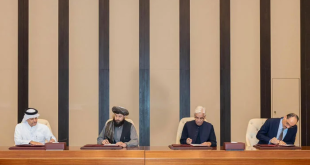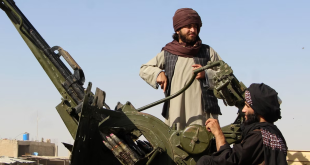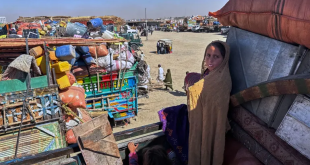By Sayed Maqsood Sadat
Since its independence (1919), Afghanistan is constantly experiencing strategic shift both in domestic affairs as well as in Foreign Policy approaches: from Monarchy to Presidency form of governance and from Communism to Capitalism political system. Eventually, the state name in Afghanistan has been changed at least three times after it became an independent nation-state. It was initially “Kingdom of Afghanistan”, changed to “Republic of Afghanistan” in 1973, subsequently changed to “Democratic Republic of Afghanistan” in 1978, and, from 1992 till now it is named as “Islamic Republic of Afghanistan”. By and large, during Kingship of Amanullah Khan (1919-1929), the country experienced a rapid movement towards Western countries; which sometimes his model of modernization was interpreted as “Westernization” among Afghan locals, the fact that caused in demise of his Kingship. During Zahir Shah’s Kingship (1933-1973), Afghanistan had maintained a certain degree of neutrality which has resulted the country to live in peace and security but undeveloped. During Daud Khan regime (1973-1978), Afghanistan was in progress of developing but relied extensively on Soviet’s aids that finally led to the invasion of the country by USSR (Union of Soviet Socialist Republics) in late 1979. The pro-Russian Communist regime led to Mujahiddine model of Islamic governance that finally led to rise of the extremist group called Taliban, which during Mujahiddine regime (1992-1996); dominantly, and during Taliban period (1996-2001); exclusively, Afghanistan relied on Pakistan.
Generally, the geo-strategic dispute “Great Game” that held between British and Russian empires during 19th century had impacted Afghanistan to function as a buffer state between them. Moreover, as they were unable to conquer Afghanistan, British India and Soviet Union agreed on leaving Afghanistan to remain a neutral state. In 1931, in order to strengthen the neutrality, Kingdom of Afghanistan and USSR signed a treaty of non-aggression. The neutral position of Afghanistan was damaged by the dynamic of the Cold War; when the Soviet Union decided to intervene politically in internal affairs of the country. The neutrality completely dies in late 1979, when the Soviet troops crossed its borders with pretext of protecting Afghanistan’s Communist government, called “Democratic Republic of Afghanistan”. On other side, the United States of America (USA) planned an encircling strategy against Soviet Union expansionism, in Afghanistan. the USA began supporting the insurgency led by Afghan Mujahiddine that were initially grouped together to fight against Soviet troops aiming to drive them away. After demise of Soviet Union, Afghanistan falls under potential influence of Pakistan especially during Taliban regime (1996-2001).
Geopolitically, Afghanistan has all the potential to positioned itself as natural corridor for traders that move goods from West to East, particularly, among four Asian regions: West Asia (Middle East), East Asia, South Asia and Central Asia. It can be achieved only by a “balanced” Foreign Policy approach and with good neighborliness policy. Even though Afghanistan is itself a rich country in natural resources, but it takes its main value given by the geopolitical situation; Afghanistan may become a transit place for the energy resources coming from Iran and Central Asian countries to Pakistan and India. Turkmenistan-Afghanistan-Pakistan-India (TAPI) project is good enough to point out that Afghanistan is a natural corridor among the Asian regions.
Geo-strategically, Afghanistan is positioned at the juncture of several nuclear powers. The regional nuclear powers such as Russia, China, India, Pakistan and Iran (the latter despite yet to acquire an atomic arsenal, it has the uranium enrichment technology necessary to develop the capacity of a nuclear power) each aiming to be regional leader, it is time for Afghanistan to revise its Foreign Policy in order to achieve the most. If not by neutrality since the circumstance has changed, Afghanistan can achieve more by a “balanced” Foreign Policy. Borrowed from the theory of “Balance of Power”, it is attempted to conceptualize “Balance of Engagement” as Foreign Policy approach to the ends to secure peace and maintain stability in a country which has long been the object of rivalry and contention among external powers. In theory of “Balance of Power” a state may get aligned with another state/s in order to balance the powerful one. On the contrary, in this approach coined as “Balance of Engagement” a state may control its own diplomatic relations towards the two rival powers each aiming to have better share in a regional context.
Adding to the point, with “Balance of Engagement” a state can diplomatically avoid any proxy in its soil by controlling its own engagement with two or more rival powers – particularly the external actors having all potential to influence the state. As simple as that, a weak state should not engage extensively with one of the rival powers which may affect the interests of another while both having considerable amount of influence in the country or the potential to do so. Or in another word, being a weak state, not to get engaged fully with country “A” that could cause anger to country “B”, or vice versa. In fact, regionally engaging in a “balanced” way may be used as technique to minimize cost and to maximize effect, as it is also seen in Trump’s policy of Asia; particularly, between India and Pakistan, or, between China and India. For its own interests, the USA clearly supports India as a deterrent of China’s rise as well as Russia’s regional influence, but not abandoning Pakistan in any case.
Overall, it is assumed that Afghanistan needs to be very careful in its engagement with the regional powers. The engagement be as such that a rival power does not feel insecure thereby. Due to the geopolitical reality of Asia, the regional powers may promote their proxy wars anywhere anytime when they feel themselves uncomfortable. For instance, India and Pakistan are two traditional rival powers in South Asian region; when Afghanistan deals with one or may be with both simultaneously, needs to keep the core interests of each in mind. Neglecting the facts may have the consequences, as we are witnessing. Same formula applies in case of Afghanistan between Iran and Saudi. In fact, during the Soviet invasion of Afghanistan, Pakistan was left in a very uncomfortable geopolitical situation between India and the Soviet Union – alley of the Indian government. Due to this, Pakistan had to renounce to the strategic depth in case of any military conflict with India. To Pakistan, the worst hypothesis is for Afghanistan to fall under influence of India or of an alley. This is how the Soviet presence in Afghanistan was perceived by Pakistan.
Particularly, since the USA has announced its desire to withdraw from Afghanistan completely as per the American-Taliban deal pact, this exit strategy may also ease the regional competition. In addition, by signing the peace deal, Taliban group is gradually shifting to a globally recognized resistance one. Though it is still believed among Afghan elites that Taliban are under hegemonic influence of Pakistan, but in recent days, the group is attempting to act independently. So, a secure and settled Afghanistan can be foreseen more than ever before. And, the common regional understanding that a peaceful Afghanistan is for benefit of all, has put weight to this analysis.
To sum up, since the Doha initiative, the regional or global consensus on peaceful Afghanistan, by and large the peace process is progressing well. So, it is empirical for Afghanistan to find a way aiming to avoid any future proxy in its soil. To this ends, thus, “Balance of Engagement” as a Foreign Policy approach is proposed as means to secure peace and maintain stability in Afghanistan.
Sayed Maqsood Sadat is PhD (IR) Candidate in Gujarat University, India. He holds a Master degree in “Geopolitics and International Relations” from Manipal University. His research interests include Foreign Policy and Diplomacy. He can be reached through E-mail address ([email protected]) and Facebook page (https://www.facebook.com/S.Maqsood.S). He tweets by the Twitter account (https://twitter.com/S_Maqsood_S).
 Afghanistan Times Latest News and Analysis from Afghanistan and the Region
Afghanistan Times Latest News and Analysis from Afghanistan and the Region




